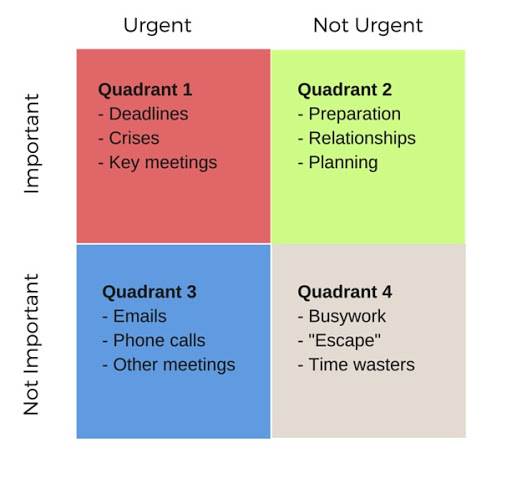A 2020 Review
Published:
This year’s theme is habit-building.
I spent the first few months of 2020 holed up in my room. I lost motivation to work, I put on (20 pounds of) weight, and I felt slumped. For nearly all of Donald Trump’s presidency, I pummeled my teenage body with junk food and aperiodic sleep. By April, I had reached a new physical and mental valley—I did not like the direction I was headed. I was especially worried about managing myself in college. One day on May, I woke up and decided to reform myself: I resolved to build an arsenal of good habits before heading off to campus.
I proudly consider that intention fulfilled. The past six months have been some of the most rewarding and empowering in my life, and all of that despite the ongoing pandemic. I am particularly pleased with the following additions to my routine:
- Half-an-hour reading sessions before bed
- Jogs and workouts, 5 days a week
- Daily 10-minute meditations on the backyard porch
These habits have made me healthier and happier. Despite biting a chunk out of each day, the meditation, exercise, and reading have also boosted my productivity by injecting excitement and energy into my work. I attribute my success to three key lessons that I’ve picked up through research and first-hand experience; I want to share them with you.
Lesson 1: Don’t Delay
For a criminal procrastinator like me, slating a new habit for tomorrow’s To-Do list is insane (i.e. I’ll do the same thing, over and over again, expecting things to change). What held me back in the beginning—and thwarted countless efforts in the past—were the constant excuses for why today wasn’t the day to start: can’t read because I need to sleep early; can’t jog because it’s raining outside; can’t meditate because my neighbor decided his lawn needed a trim. Besides, I would tell myself, I had work (respond to emails, shuffle furniture, fold socks, etc.) to do!
On reflection, my mistake was undervaluation. If I could foresee the immense health and energy benefits of consistent jogging, then occasional soggy clothes would be a small price to pay. Stephen Covey’s quadrants provide a precise lexicon for my problem. I underestimated the value of Quadrant II activities (non-urgent but important), while overweighting Quadrant III activities (urgent but ultimately unimportant). Of course, in the long term, nearly nothing can be more important than physical and mental health, familial and social ties, and personal fulfillment—certainly not checking my inbox.

Take the long view: once you view habits in terms of their long-term reward, starting today becomes a no-brainer.
Lesson 2: Ride the Momentum
Habits reinforce themselves. Bad habits make it obvious. Earlier this year, there was a week when I exclusively ate dinner at 2AM. Every day. At McDonalds. The first time, I saw an advertisement for a Travis Scott burger and thought it’d be worth the drive. The second time, I had missed breakfast (from staying up the night before) and needed a substitute meal. Soon enough, my expensive, disruptive, unhealthy late-night cravings had hijacked my microbiome and biological signals—I became a valued McDonald’s customer.
Luckily, the effect goes both ways. Jogging is a great example: the first few jogs will be brutal, but you’ll quickly grow addicted rush of endorphins and jolt of energy that comes with a 3-mile run. You can augment the incentives by minimizing friction—setting aside time in your schedule, leaving jogging clothes ready on the dresser drawer, setting up a running playlist. A tasty reward after doesn’t hurt either.
The strongest reinforcer for me was social structure. Over the summer, a couple friends and I committed to hiking Monday, Wednesday, and Friday every week (on a tough trail, too). A colossal investment of time and energy, but come on—are you really going to ditch today’s hike? And don’t you want to grab that smoothie after? The gentle judgement and fun companionship were a powerful push and a pull.

Committing to the first day of reading, jogging, or meditating is hard precisely because it is such a important step. Ditto for the first week and first month. Have faith in the physics and give yourself a nudge: momentum will carry you forward.
Lesson 3: Metrics Matter
You need to be held accountable. To yourself. Abstract commitments are easy: I want to be nicer, I want to be more open minded, and I want to get healthier—who the hell doesn’t! The pundit predictions prove it: vague statements are attractive precisely because they come with a built-in escape hatch for when you inevitable botch the mission. “Maybe I didn’t go to the gym every week, but technically, those first few visits made me healthier.”
Quantifiable metrics are key because they mostly seal off opportunities for circumvention. The best goals specify a time frame and are measured regularly. Here are some examples from my journey:
- Every morning, I woke up and stepped on my Bluetooth scale. I set monthly target weights and tightened them if I was ahead of schedule.
- I logged when and how long I slept on my time tracker (more on this later) so that I knew if I was over- or under-sleeping.
- When I wanted to quit a habit, I set milestones in Google Keep and savored every checkbox.
Check my 2021 New Year’s resolutions for more examples of quantifiable goals.
Conclusion
Habit-building really is as powerful as people say it is. A few months can powerfully change your physical, mental, and social state. If you have a habit that you’ve been meaning to pick up, start that journey today. I hope my advice is helpful.
